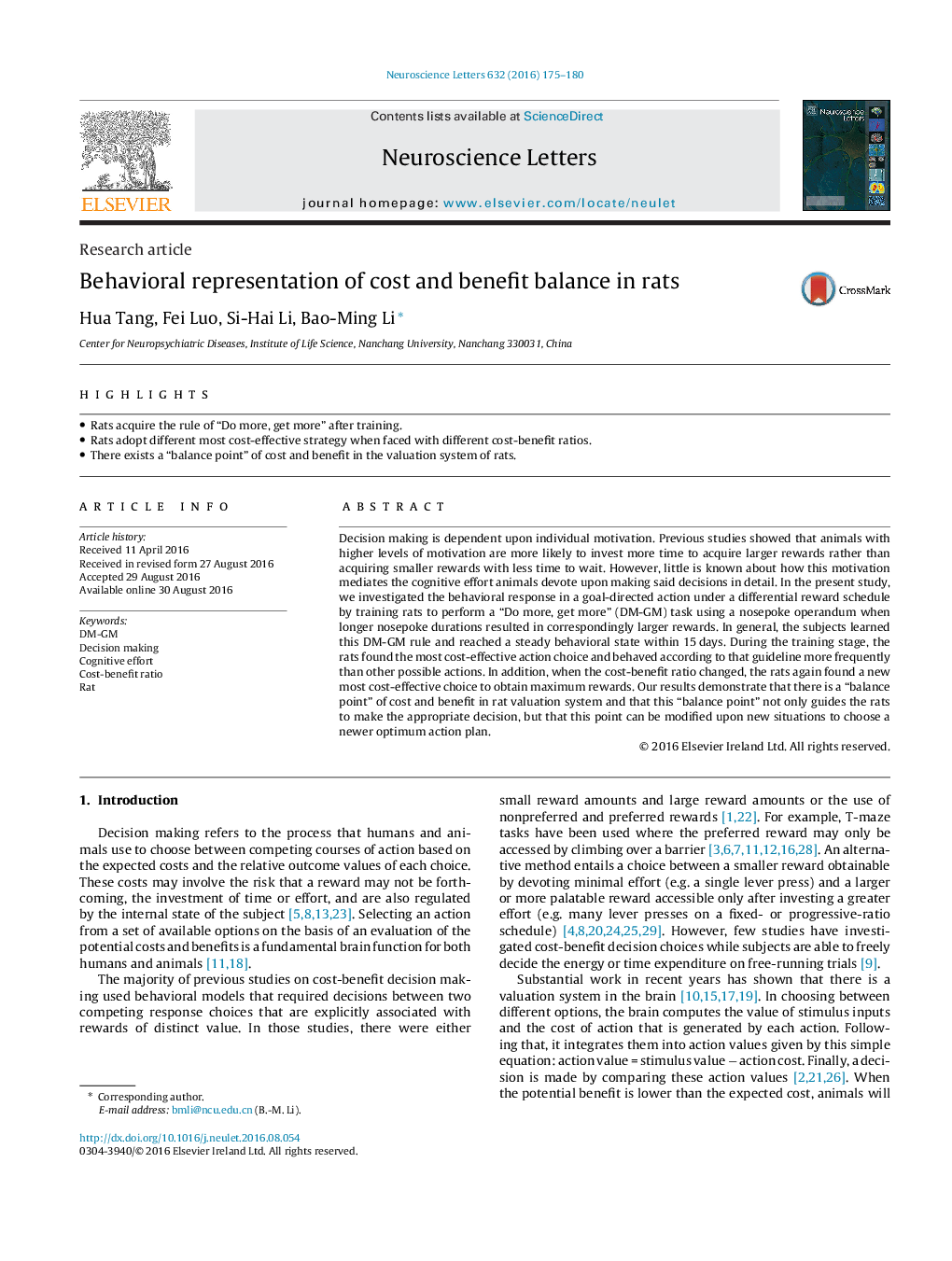| Article ID | Journal | Published Year | Pages | File Type |
|---|---|---|---|---|
| 6278965 | Neuroscience Letters | 2016 | 6 Pages |
Abstract
Decision making is dependent upon individual motivation. Previous studies showed that animals with higher levels of motivation are more likely to invest more time to acquire larger rewards rather than acquiring smaller rewards with less time to wait. However, little is known about how this motivation mediates the cognitive effort animals devote upon making said decisions in detail. In the present study, we investigated the behavioral response in a goal-directed action under a differential reward schedule by training rats to perform a “Do more, get more” (DM-GM) task using a nosepoke operandum when longer nosepoke durations resulted in correspondingly larger rewards. In general, the subjects learned this DM-GM rule and reached a steady behavioral state within 15Â days. During the training stage, the rats found the most cost-effective action choice and behaved according to that guideline more frequently than other possible actions. In addition, when the cost-benefit ratio changed, the rats again found a new most cost-effective choice to obtain maximum rewards. Our results demonstrate that there is a “balance point” of cost and benefit in rat valuation system and that this “balance point” not only guides the rats to make the appropriate decision, but that this point can be modified upon new situations to choose a newer optimum action plan.
Related Topics
Life Sciences
Neuroscience
Neuroscience (General)
Authors
Hua Tang, Fei Luo, Si-Hai Li, Bao-Ming Li,
